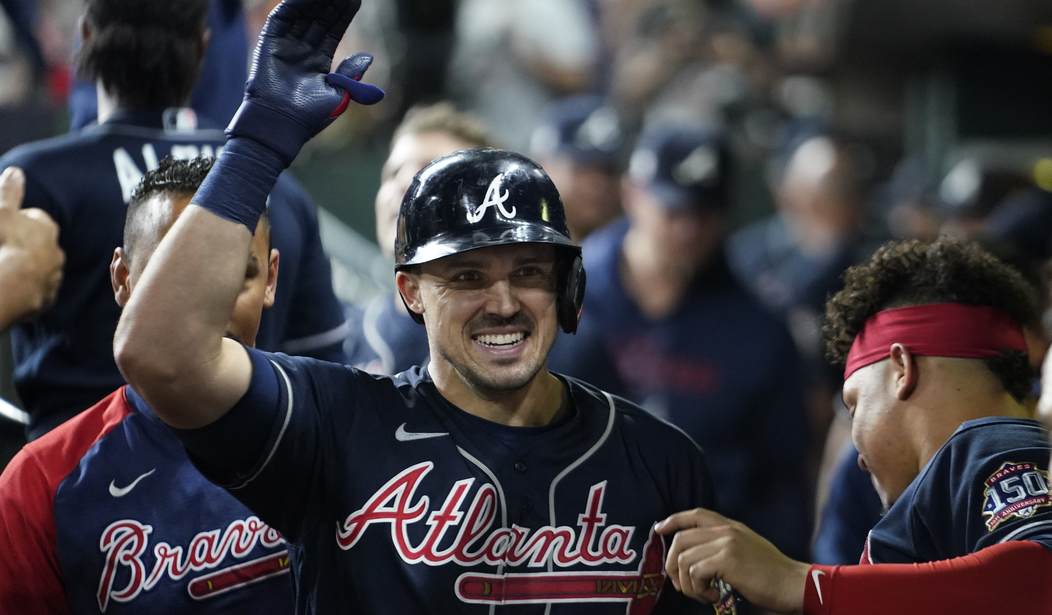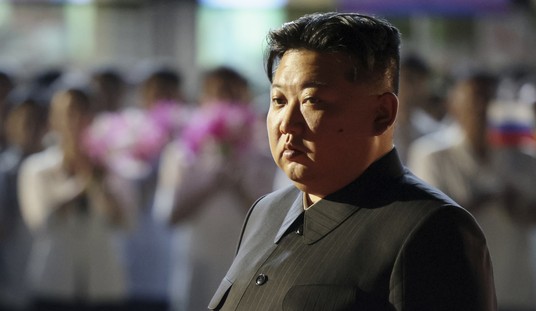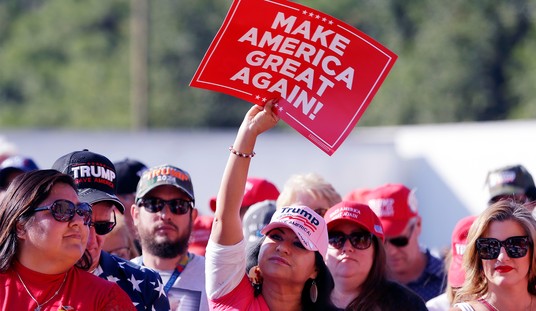The Atlanta Braves can’t get much love from the media.
Back in the spring of this year, much of the mainstream press sided with wokes like pretend-governor Stacey Abrams when Major League Baseball moved the All-Star Game from Atlanta based on lies about Georgia’s new voting law.
Every time the Braves make the playoffs — and only when they make the playoffs — the media dusts off the old chestnut about how the Tomahawk Chop is “racist.”
Moronic sportswriter Bill Plaschke complained about the atmosphere at Truist Park during the National League Championship Series (when the only thing wrong with the stadium is that stupid name). And don’t get me started on how sportscasters fawn over the opposing teams.
These days, CNN keeps biting the hand that fed it for so many years, forgetting that the network has had its headquarters in Atlanta for decades. Now CNN has published a bit of “analysis” from someone named John Blake about how the Braves have alienated the black community.
The trouble with Blake’s article is that he bases much of it on half-truths.
Near the beginning of the article, he points out that racial tensions in the South are about more than sports. The South does have a long way to go on race relations, so that assertion may be the most truthful thing in the whole article.
First off, Blake blames Georgia Republicans for making the Tomahawk Chop “political.” He points out the fact that Governor Brian Kemp naturally used Braves imagery when he called out Democrats for their part in moving the All-Star Game.
Kemp tweeted: “While Stacey Abrams and the MLB stole the All-Star Game from hardworking Georgians, the Braves earned their trip to the World Series this season and are bringing it home to Georgia. Chop On, and Go @Braves.”
Blake ignores the fact that the left and MLB politicized the Braves and the Chop first. He also conveniently leaves out the fact that Kemp often uses the phrase “Keep Chopping” to refer to working hard for Georgians — and the phrase has nothing to do with baseball.
Then, of course, Blake brings up the fact that former president Donald Trump performed the Chop when he attended Saturday night’s Game 4. If a Democrat politician had done it, would it be problematic?
Blake again brings up critics of the Braves without mentioning support.
Critics have long demanded that the Braves eliminate the chop and change their team name — as the former Cleveland Indians did earlier this year — from one seen by many as a racial slur.
It’s remarkably convenient to leave out the fact that the Eastern Band of the Cherokee Indians, the closest tribe to Atlanta, has both announced its support for the Braves and partnered with the team to promote cultural awareness. Even MLB commissioner Rob Manfred has shown his appreciation for the Braves’ outreach to Native Americans.
Related: Braves Fans Rejoice as MLB Backpedals
Blake saves his biggest half-truth for the end of his article. He says that the Braves have abandoned the black community of Atlanta by leaving the city of Atlanta proper for the northern suburbs of Cobb County.
One of the biggest obstacles the Braves face in erasing that perception is a primary cause for the rift: the team’s decision to move to a predominantly White suburb for the 2017 season.
Team officials said at the time that they left Turner Field downtown because there wasn’t enough parking and reliable mass transit. The Braves now play in Cobb County, near a constellation of primarily White suburbs north of Atlanta.
The truth is somewhat more complex than Blake lets on. To hear Blake tell it, the Braves complained about parking but then hightailed it for whiter pastures. Not so fast.
The Braves weren’t looking to leave Atlanta, but after the team’s owners saw the lengths to which then-Mayor Kasim Reed went to keep the Atlanta Falcons in the city, the Braves tried for a similarly sweet deal.
The city of Atlanta wasn’t as accommodating to the Braves.
The Braves were frustrated by restrictions on developing the property near Turner Field, which is owned by the city and county. Relations between the team and recreation authority were further frayed by the failed Fanplex entertainment complex. And for the past two decades, as part of a deal negotiated at the time of the Olympics, the Braves have given a percentage of their parking revenue to three neighborhood community organizations, an arrangement with little built-in oversight and even less to show for it; anyone who’s wandered Georgia Avenue on a non game day knows that, except for the baseball team, there’s little business in the area. For decades, the best way to make money near Turner Field has been to keep your lot vacant and rent it out for parking during home games.
Turner Field and its environs were a ghost town outside of baseball season and the occasional concert, and the Braves wanted to create a place that was a year-round experience. When the Braves’ pleas to Reed and his team fell on deaf ears, Cobb County offered the team an area that was a blank slate and the choice was clear.
Related: Atlanta’s Mayor Urges Eyewitnesses to Call 911 Instead of Videoing Incidents
Now the Braves play at Truist Park in a safer area than Turner Field, which is now the football stadium for Georgia State University, which is basically taking over much of the city. Surrounding the park is the Battery, a vibrant shopping, dining, and tourism area that thrives all year long.
Another thing that Blake gets wrong is his portrayal of Cobb County as this lily-white enclave. I was born in Cobb County, my mom’s side of the family came from there, and I have an affinity to the place I consider part of my roots. It’s an already diverse area that’s rapidly growing more diverse — which further detracts from Blake’s credibility.
At the end of Blake’s article, he shoots his entire argument in the foot by talking about how fewer black athletes play professional baseball:
But few Black athletes are playing Major League Baseball in 2021. The presence of Black players in the majors peaked in 1981 at 18.7%, according to the Society for American Baseball Research. On Opening Day this year it was 7%, the group said.
There are several reasons for this shift. More Black athletes are going into football and basketball because it’s less expensive to play and more college scholarships are available.
At the end of the day, the problem Blake laments is less about the Braves alienating black fans and more about black players alienating MLB.
Here’s the thing: the Braves are never going to get much respect from the sports media or the press in general. And we fans are used to it. So as the Braves are one win away from winning their first World Series in 26 years, I have one thing to say: Chop On!










